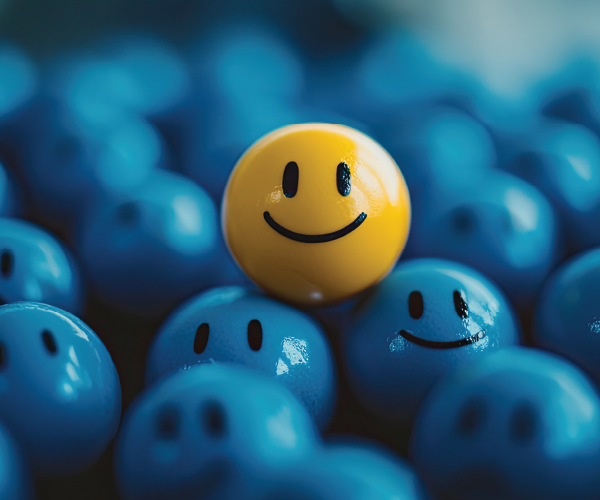
Feeling Fine
June 6, 2018
6 minute ReadToday’s consumer is spending more and the growing car wash industry stands to capture even more business.
To capitalize on the opportunity, car wash operators need to understand the psychological factors driving consumer decision-making. That will show where their business is giving modern consumers what they want and where there is room for improvement.
The Psychology of Today’s Consumer
Consumer spending is moving in a positive direction.
The National Retail Federation projects retail sales to rise by as much as 4.4 percent in 2018, the largest rate of increase since 2011. Consumer confidence rose more than expected in January, the most recent month available, after it hit its highest mark in 17 years in November and then declined in December.
National Retail Federation Senior Director of Media Relations Ana Serafin Smith said low unemployment and a slight uptick in wages mean more money in consumers’ pockets. That has them more confident in the economy and the job market.
“When you add all that together, it means they’re spending a little more than they would,” Serafin Smith said. “They’re more willing to take on debt and they’re going to spend a little more taking care of their home and their car. That includes getting their car washed.”
While consumers are more willing to spend than in the past few years, they are also more savvy and sophisticated about getting a good deal, Serafin Smith said. Their smart phones allow them to research businesses, comparing prices and user reviews, almost anytime and anywhere. They also expect to be able to use connect with a company — and receive a response.
“Today’s consumer is more tech-savvy than ever — and because of that more empowered in how they do business with companies,” said Tom Keiser, the chief operating officer at San Francisco-based customer service software company Zendesk. “Customers expect the companies they do business with to meet them on the channel of their choice, whether that’s through social media, online chat or a call. In the end, we all want the same thing: to be seen and heard by the companies we do business with, and to receive relevant responses and services when and how we want them. Businesses need to be prepared to offer this — especially now — because the evolution of customer expectations shows no sign of letting up.
What Drives Consumers to a Professional Car Wash
Eighty percent of Americans said they brought their car to a professional car wash at least once in the past year, according to the 2016 International Carwash Association Consumer Study. In that survey, 69 percent of respondents said they took their vehicle to a professional car wash more often than they washed it themselves at home.
What psychological factors influence their decision to take their vehicles to a professional wash?
Bob Klein, the lead researcher on the study and chief strategy officer with Blue Chip Worldwide, said it is a mix of rational and emotional reasoning. In the 2016 survey, 64 percent of Americans said washing a vehicle was a necessary part of routine maintenance, up from 53 percent in 2014. Given that significant jump in the percentage of people who see a car wash as an important part of vehicle care, there are several rational reasons to opt for a professional wash. They are considered more convenient than washing at home, more enjoyable, a better quality of wash and better for the environment and the car, Klein said.
Klein said the emotional reasons are even more striking and present a marketing opportunity for car washes. In the 2016 survey, 87 percent of the respondents said they go to a car wash because having a clean vehicle makes them feel good. By comparison, only 42 percent said a coupon or discount played a factor.
“There may not be a single fact more dramatically important than that,” Klein said. “Cars are badges for us. They’re statements of our personality, how we want to be perceived by others. It’s just like looking good as an individual, wanting your clothes to look nice. You want to present a great first impression. It’s no different with a car.”
Additional research has identified the consumer yearning to feel good as a driving factor behind purchasing decisions. In a recent survey, veteran branding expert Norty Cohen, CEO of St. Louis-based ad agency Moosylvania, said consumers prefer brands that make them look good, feel good and enhance their image.
In a January 2017 article in the Journal of Consumer Psychology, a team of researchers concluded that the psychological value of good and services often equals or surpasses their functional value. In that case, consumers often made purchasing decisions to overcome discrepancies in their self-image or the difference between how they currently perceive themselves and how they would like to be perceived.
Klein said the fact that people make purchasing decisions to look good and feel good is a fertile business opportunity for the car wash industry because of the rise in new vehicle sales. After bottoming out during the Great Recession, new vehicle sales hit a 21st Century high of nearly 18 million in 2017. (For more on vehicle trends, see “Where the Rubber Meets the Road on page 66.)
“The influx of new cars on the road has really driven, no pun intended, attitudes about taking care of vehicles,” he said. “Not surprisingly, people who have newer cars want to keep them looking new. The percentage of people who wash their cars once a month is significantly greater for people who have cars less than three years old than for people who have cars four to nine years old or 10 years old or more.”
This, Klein said, is a marketing opportunity for car wash operators to try and connect with consumers who see a clean, new vehicle as a status symbol and a reflection of their personality.
“Are car washes today delivering in terms of appealing to that feeling of having a new car to drive more business?” he said. “People want it now more than ever.”
Opportunities to Better Connect with Today’s Consumer
Today’s consumers are using technology to research and connect with businesses. They are also seeking out businesses that put a premium on providing a positive customer experience. Those present opportunities to improve the connection with consumers. Digital marketing through email, Facebook, Twitter or some other social media platform reached only 11 percent of the respondents in the 2016 consumer survey, a “profoundly missed opportunity for the car wash industry.” (For more on social media marketing, see “Online Outreach” on pag 76.)
Serafin Smith said a strong social media presence is particularly effective at connecting with customers.
“The consumer likes to interact with brands they feel they have a strong relationship with,” she said. “Social media helps that. Younger consumers and millennials like social media to engage. They want to connect with a brand and build a relationship.”
Keiser said car wash operators should use technology to make it easier for customers to connect to their business — advertising their customer support email address, creating a digital help center and establishing multiple channels (phone, email, social media) for customers to offer feedback.
Offering different channels of communications helps car wash owners in the long run, as they provide insights into what areas of business can be improved,” Keiser said “Feedback from customer service channels can inform everything from whether business hours need to be adjusted, to busy periods in which more employees may be needed onsite. This kind of information is valuable to any business — but to get it, you need to meet customers where they congregate and provide a means for them to get in touch. This shift in thinking allows businesses to remain competitive.
The 2016 consumer survey also revealed opportunities for improvement in overall customer experience. In it, car washes ranked fifth out of 10 types of retail businesses, behind grocery stores, sit-down restaurants, mass retailers and quick service restaurants.
Today, retailers are often offering amenities such as free wi-fi or complimentary coffee to improve the overall experience for customers.
Klein said consumer expectations for a good experience are rising in the car wash industry. But those expectations are less focused on amenities than customer service, speed, cleanliness and price.








